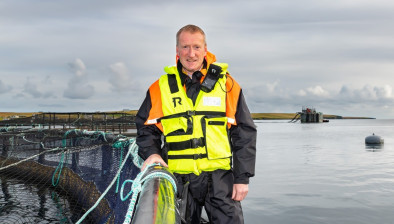New Bill outlines major reform of Crown Estate Scotland

A new Bill has been submitted to the Scottish Parliament outlining the long-term future of land and property management organisation Crown Estate Scotland.
The legislation sets out the proposed long-term management arrangements for Crown Estate assets including seabed, just under half of the coastline and four rural estates.
In addition, the Bill outlines the corporation’s role as manager while enabling councils and communities to directly manage specific assets on a case-by-case basis.
Powers over the estate were devolved to Scotland in April 2017 and it’s been operated under interim management since then.
The entire range of land, property and other assets managed by Crown Estate Scotland valued at £275.7 million. It generates an annual gross revenue of approximately £15m.
Among the assets in Scotland are 37,000 hectares of rural land including the Glenlivet, Fochabers, Applegirth and Whitehill estates. It also holds almost half of the foreshore including some ports and harbours.
Environment secretary Roseanna Cunningham said: “This is a significant moment for Scotland and is the first ever Bill on the Scottish Crown Estate. Building on the work of the Smith Commission, this Bill proposes, for the first time, new powers for Scottish Ministers to change who manages Scottish Crown Estate assets, and opens up the possibility of local authorities and communities taking control of the management of those assets.
“The estate consists of a diverse portfolio, including thousands of hectares of rural land, half of Scotland’s foreshore, urban property and seabed leasing rights for activities such as renewable energy.
“That is why this Bill recognises that a ‘one size fits all’ approach is not practical, laying the foundation for changes in the management of individual assets.
“I believe strongly in maximising the benefits of the Crown Estate for our communities and the country as a whole, while ensuring assets are well maintained and managed, with high standards of openness and accountability.
“That’s why I have put these principles at the very heart of this important Bill.”
Amanda Bryan, chair of Crown Estate Scotland, said the legislation is an “important step forward in setting out the long-term future of the organisation”.
“Coming to the end of our first year of operation we have increased engagement with communities, local authorities and other partners and ensured continuity for our tenants,” she said.
“We have also successfully raised funds to continue investing in farms and activity designed to grow Scotland’s low-carbon economy, such as strategic research into offshore renewables.
“We will work to ensure our staff and tenants are kept fully informed as the Bill progresses through Parliament.”







